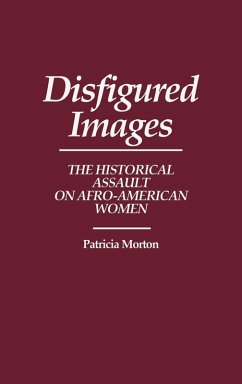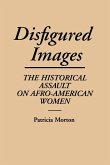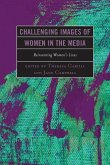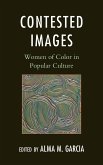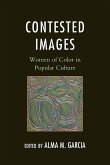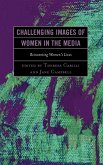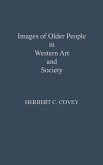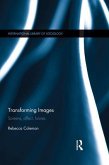Much of the material unearthed by this book is ugly, states historiographer Patricia Morton who exposes profoundly dehumanizing constructions of reality embedded in American scholarship as it has attempted to render the history of the Afro-American woman. Focusing on the scholarly literature of fact rather than on fictional or popular portrayals, Disfigured Images explores the telling--and frequent mis-telling--of the story of black women during a century of American historiography beginning in the late nineteenth century and extending to the present. Morton finds that during this period, a large body of scholarly literature was generated that presented little fact and much fiction about black women's history. The book's ten chapters take long and lingering looks at the black woman's prefabricated past. Contemporary revisionist studies with their goals of discovering and articulating the real nature of the slave woman's experience and role are thoroughly examined in the conclusion. Disfigured Images complements current work by recognizing in its findings a long-needed refutation of a caricatured, mythical version of black women's history. Morton's introduction presents an overview of her subject emphasizing the mythical, ingrained nature of the black woman's image in historiography as a natural and permanent slave. The succeeding chapters use historical and social science works as primary sources to explore such issues as the foundations of sexism-racism, the writing of W.E.B. DuBois, twentieth century notions of black women, current black and women's studies, new and old images of motherhood, and more. The conclusion investigates how and why recent American historiographical scholarship has banished the old myths by presenting a more accurate history of black women. This keenly perceptive and original study should find an influential place in both women's studies and black studies programs as well as in American history, American literature, and sociology departments. With its unusually complete panorama of the period covered it would be a unique and valuable addition to courses such as slavery, the American South, women in (North) American history, Afro-American history, race and sex in American literature and discourse, and the sociology of race.
Hinweis: Dieser Artikel kann nur an eine deutsche Lieferadresse ausgeliefert werden.
Hinweis: Dieser Artikel kann nur an eine deutsche Lieferadresse ausgeliefert werden.

